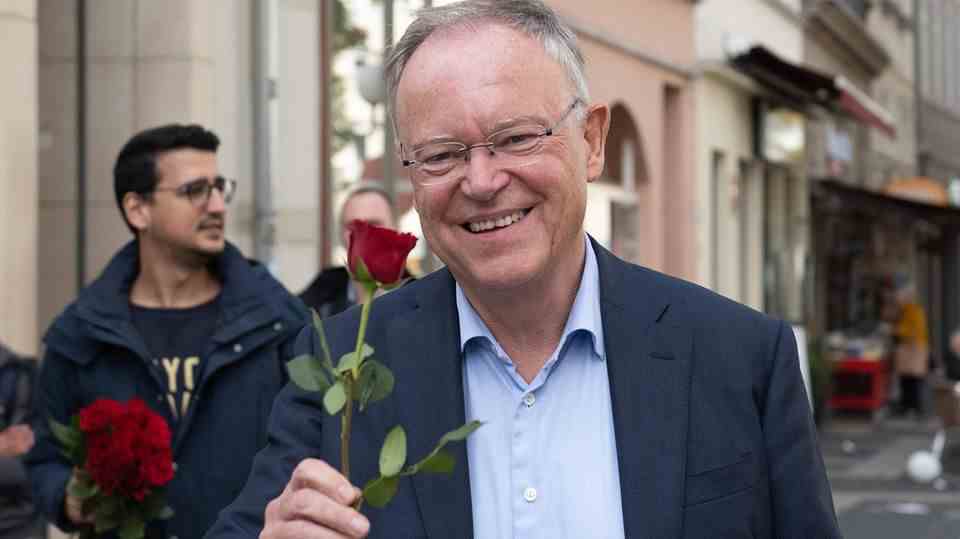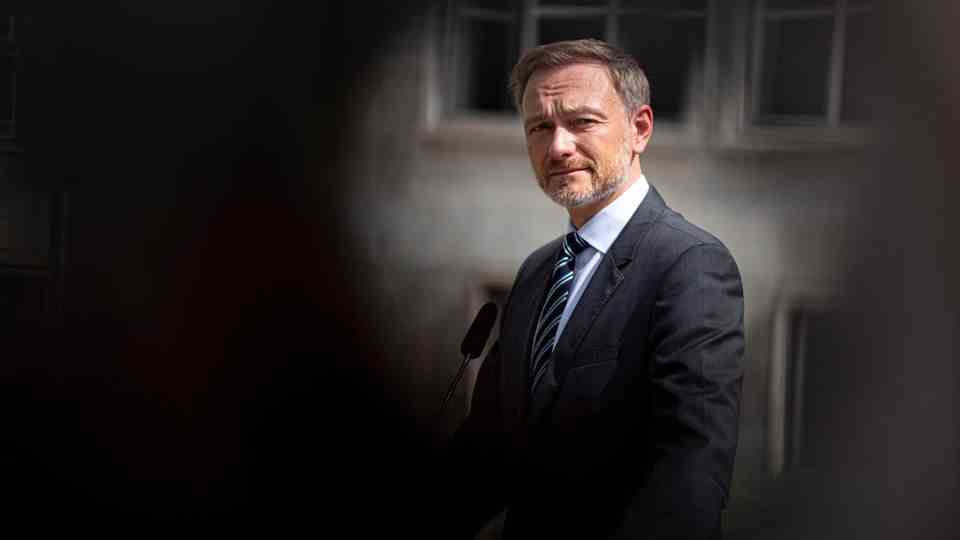State elections in Lower Saxony
The quiet comeback of the AfD
Frank Rinck, state chairman of the AfD Lower Saxony
© Michael Matthey / DPA
In the east, the AfD has been getting frighteningly good results for years. Now it turns out that in the West, too, the party is on the way to becoming constantly in the double digits. This would make it more than just a pure “Eastern party”.
By Philip Sandman
In Lower Saxony of all places, a federal state in which the AfD could not reach more than eight percent in polls even during the refugee crisis in 2015, the result could now be 10 to 11 percent. In June, the AfD was still a meager 6 percent in the polls. An alarm signal for the other parties – including the left.
While almost everyone will lose (except for the Greens), a doubling for the AfD (state election 2017: 6.2%) is quite feasible. But why actually?
“The hour of the populists has come”
Albrecht von Lucke, political scientist and editor of the monthly magazine “Blätter für deutsche und Internationale Politik” contradicts the thesis that the AfD has so far only been a pure “Eastern party”.
In an interview with RTL/ntv, von Lucke explains: “The AfD is by no means just an Eastern party, it wasn’t even in the flight crisis of 2015. It always gets nationwide support when the crisis is particularly big, but also when there are doubts about the dominating politics. Then the hour has come for populists with simple answers.”
Nevertheless, it is true that the AfD has been significantly less successful in the west than in the east – until now. Lower Saxony could represent a comeback and be a first strong indication that the future of the AfD may not only lie in East Germany.
Götz Frömming, parliamentary director of the AfD parliamentary group, said to RTL / ntv: “We now also have a fixed core clientele nationwide that we can rely on. It’s a little under ten percent. How much higher it is then, that depends on what mistakes the others make – from the point of view of the citizens. Then protest voters come back to it.”
In addition, according to Frömming, a look at other countries shows that the existence of a “political offer on the right of center” is now part of democratic normality: “Germany has seen this development, which was already apparent earlier in Austria or Sweden, with a certain Delay made up.”
“Right-wing populist protest catches more”
The tailwind of the AfD should also be a thorn in the side of the decimated left. After all, the AfD and the Left Party are courting the same clientele, agrees Albrecht von Lucke. “Obviously, the AfD is having more success with it. A right-wing populist protest is currently more effective than a left-wing populist one.”
In addition, one has to state: “In the West, the sensitivity that used to exist is apparently disappearing, not to vote for such a party as the AfD, which is decidedly right-wing in parts,” says von Lucke. The pro-Russian stance of the AfD leadership around Alice Weidel and Tino Chrupalla doesn’t hurt, on the contrary: “The fact that the AfD is extremely close to Russia is apparently irrelevant for many people in the West,” says the political scientist. The AfD promises the completely irrational but quick solution: If we just stop delivering weapons and end the sanctions, then the war would soon be over and with it our energy and economic problems. “This is exactly what resonates with many people throughout Germany,” says von Lucke.
“We want to rule”
The big question: What does the AfD actually want? Does she want to participate in government at state or federal level? Götz Frömming explains it like this: “Of course, for the good of the country, you have to be prepared to enter into a middle-class coalition with the reformed CDU or the FDP. We want to be part of the government, but of course not at any price.”
If the AfD really gets over ten percent in the elections in Lower Saxony on Sunday, then it should at least have reached Berlin’s political scene that the supposed swan song for the AfD is over. And winter in Germany hasn’t even really started yet.
This article first appeared on n-tv.de.



